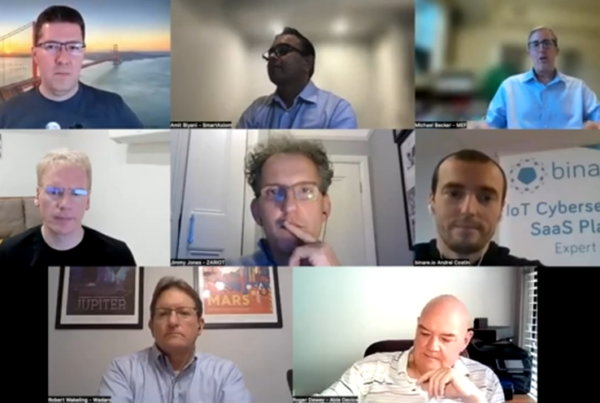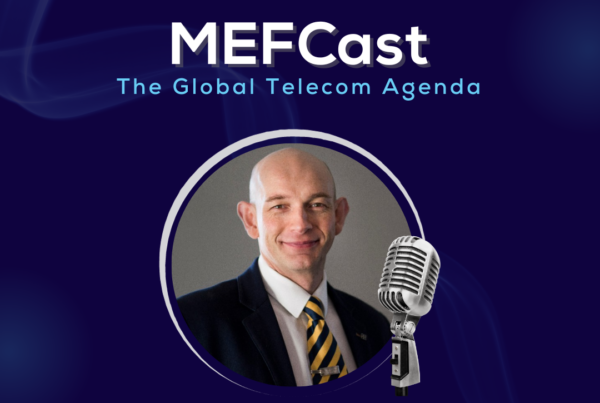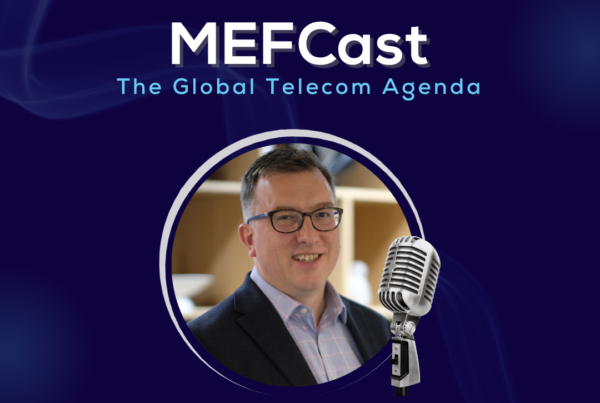Rob Pegorago, tech journalist and moderator from the recent MEF Data Privacy & Security Summit at CES shares 10 things you need to know about the personal data economy, following the discussions of a panel held on the topic – listen to the debate in full below.
There’s a traditional way to deal with your privacy online: In return for a free service, we click an “I agree” button that lets companies collect more of our information than we might like, subject to poorly-documented terms that they’re free to change at will. In our more self-aware moments, we may resent that exchange.
But that’s not the only way to arrange things. A panel during MEF’s Consumer Trust Summit at CES in Las Vegas last month explored ways for customers to retain ownership of their data as part of a better-defined bargain—as well as the factors that hold back the development of what MEF calls a personal data economy. Here are 10 things to know about this concept.

1) The concept may sound vague, but concrete examples are easy to find. Think of allowing Intuit’s Mint.com personal-finance app to check your bank and credit-card accounts to provide you with an overall dashboard of your finances—or of telling Google Maps where you live and work to get constantly-updated travel-time estimates. In each case, you’re handing over a discrete subset of your data for a specific purpose, and you can take it back at any time.
2) The traditional collect-everything-about-your-consumers approach has costs of its own, starting with the potential for data breaches. Any organization can lose customer information if it fails to secure its servers, but the damage increases as more data piles up.
3) In the European Union, data-privacy regulations like the forthcoming General Data Protection Regulation will present further constraints on corporate collection of data—and the GDPR’s rules will apply to non-EU companies doing business with EU citizens when it takes effect next year.
4) U.S. regulation is considerably looser at the federal level, but the Federal Trade Commission has shown it’s willing to punish privacy violations that cross the “unfair and deceptive” line—seen recently in its smackdown of the electronics firm Vizio for tracking the television-viewing habits of owners of its TV sets.
5) At the same time, building a personal-data platform that lets one customer provide their data to multiple third parties on his or her own terms is harder. The Washington, D.C., startup Personal, for example, tried to make that happen but after five years opted to pivot into helping companies better use their own data, renaming itself TeamData in the process.
Listen to the panel in full now
6) Companies developing personal-data platforms need to provide upfront value to their users independent of support for these platforms from existing firms—for instance, by parsing their customers’ data for useful insights. As one of our CES panelists, Digi.me founder Julian Ranger, said during the discussion: “Make it useful to yourself first, then others.”
7) Blockchain technology, best known for its use as the distributed ledger of transactions behind Bitcoin, opens new ways for customers to share selected data securely and with greater privacy. This Feb. 7 Deloitte white paper offers a good introduction to how, as it says, blockchain technology “transforms reputation into a manageable attribute.”
8) But: Asking customers to take ownership of their data can also come with a cognitive load than many of them may not appreciate—the harried individual who has to take a credit-card issuer’s word on his balance and struggles to send out Christmas cards by New Year’s Day may not be an easy convert to the personal data economy.
9) Another constraint: Current U.S. laws give companies enormous room to exploit customer data as long as their privacy policies—which in many cases would be more accurately named “data-usage policies”—don’t obscure those possible applications.
10) Finally, investors often prefer to see startups keep their options open for possible pivots—which encourages these firms to hoard customer data in case it might be handy in a future business model. This, too, is an issue personal-data-economy backers will need to work through.
Get more Insights
For more in-depth discussion on the regulation, use cases, trends and drivers that are disrupting and enabling game-changing opportunities for businesses, consumers and their personal data, listen to more sessions from the Data & Privacy Summit in Las Vegas.






